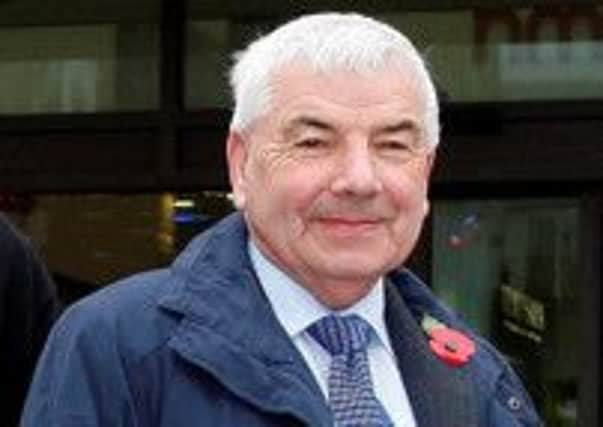Bank fraudsters are ‘despicable cowards’


“For anyone to target people in such a callous manner shows they are faceless despicable cowards”, he said. “I understand that tens of thousands of pounds have been stolen under this fraud, and I urge people to be very careful if people ask them for banking details. It is always much better to be safe than to be going through what the victims of this crime are.”
Mr Robinson continued: “Limavady PSNI has given first class advice when we were warned that ‘it has been known for fraudsters to keep the telephone line open after their conversation, so that when you make a call, you are talking to them again. Avoid this by first of all making a call to a family member or friend so that you can be sure the line is clear.’ I whole heartedly support this advice from Sergeant Hunt.”
Advertisement
Hide AdAdvertisement
Hide AdThe Limavady MLA added: “Please be careful if anyone telephones you seeking private banking details and do not be afraid to contact your own bank’s branch in person to establish the validity of any requests. Some of the local banks have 24 hour helplines so obtain the helpline number from the bank and use that if in any doubt.
“I urge everyone to minimise the opportunities for this crime to occur and to report any suspicious telephone calls you may receive to the PSNI”, concluded Mr Robinson.
Mr Robinson’s comments follow another in a string of warnings from Limavady police about frauds in the local area. While frauds have taken place across Northern Ireland, in the Limavady area alone, more than 20 have been reported to police in the past two months.
Chief Inspector Tony Callaghan, the Area Commander, said that some of the frauds had involved quite significant sums of money: “We believe that a gang of criminals is behind the incidents and is exploiting a lack of knowledge by the customers of banks and other financial institutions.
Advertisement
Hide AdAdvertisement
Hide Ad“The themes of the approaches vary, but they are generally aimed at getting people to disclose personal financial details such as PIN codes.
“In many cases the callers say they are from certain banks or other financial institutions. A typical ploy is to claim that a suspicious transaction had been identified in a person’s bank account and that often leads on to persuading the individual to transfer money from a genuine account into an another account, which, of course, the fraudster controls.
“What we are saying is you get a call or email, do not give out financial details or agree to any transaction, and do not respond on email addresses or phone numbers provided by the caller.
“You can always check the legitimacy of any approach by contacting the named bank on a number you know to be genuine.
Advertisement
Hide AdAdvertisement
Hide Ad“It has been known for fraudsters to keep the telephone line open after their conversation so that when you make a call, you are talking to them again. Avoid this by first of all making a call to a family member or friend so that you can be sure the line is clear.
“Many banks also offer a 24-hour customer services telephone services. You should take the number from official bank statements.”
Chief Inspector Callaghan stressed that fraudsters used a number of different scenarios and that all calls should be treated with a degree of caution until they had been checked out.